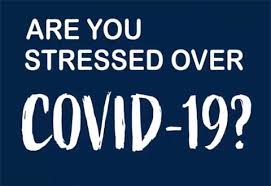By Patrick Payumo
Stress affected many students negatively during the pandemic.
Academic Advisor Andrew Gaden said, “I believe a vast majority of the College of Southern Nevada student body experienced some form of enhanced stress since the pandemic reared it’s ugly head roughly a year ago. From an academic perspective alone the fact that all classes were transitioned to online must have added a ton of unwanted stress, especially if the student had never taken an online course in the past.” That adds to the stress of their personal lives including: jobs, childcare, home schooling and health.
Jessica Alvarez, a student at CSN, said, “Not being able to have a normal school year messed up my ability to learn correctly. I don’t have a professor in person to teach me. I’m an introvert so it was hard to get the courage to ask questions and now it’s even harder.”
Alvarez also suffered personal tragedy and loss. “Some family members and one friend have passed away during the pandemic and so emotionally it’s been hard. On top of that I have school to deal with and having to be on top of all my schoolwork.”
According to the World Health Organization as of March 26, there was 125 million cases of COVID-19 and 2,748,737 deaths.
Other hardships ensued during the pandemic.
Frontiers in Psychology, an academic journal, published a study November 2020 titled “Mood Responses Associated with COVID-19 Restrictions”. It stated, “The severe restrictions imposed in many nations had the potential to significantly influence the physical and psychological well-being of those affected… including PTSD symptoms, confusion and anger. Fear, frustration and boredom were among the stressors listed as contributing to mental health issues.”
Laisa Garcia, another student at CSN, said, “It caused me to somewhat feel bored.”
According to a study titled “Self-Quarantine and Weight Gain Related Risk Factors During the COVID-19 Pandemic” published by ScienceDirect, an academic journal, stated, “Risk factors for weight gain during self-quarantine are inadequate sleep, snacking after dinner, lack of dietary restraint, eating in response to stress and reduced physical activity.” Many students can relate to that.
Although many effects were challenging, some found good ways to cope.
Beatrice Lee of The University of Wisconsin–Madison wrote in an article on the APA PsycNet website, “Correlation analyses demonstrated that perceived stress related to COVID-19 was positively associated with coping strategies including self-distraction.” This might include scrolling thru social media, going out for a long drives or doing housework or homework.
CSN students can look to a brighter future as vaccines roll out and life returns to normal.




